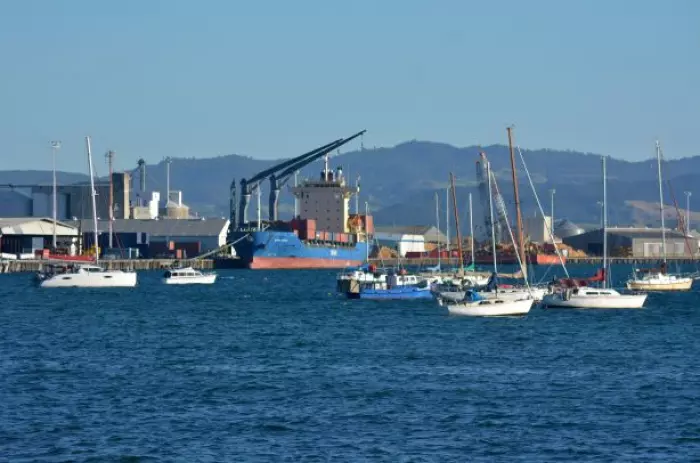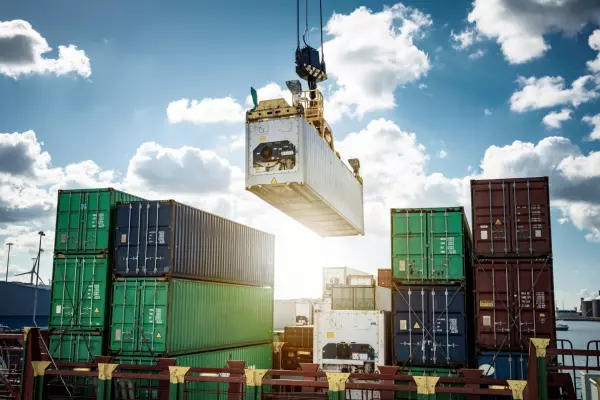Exporters say freight prices are going from expensive to “stratospheric” as global shipping gridlock continues to bite.
Quoted shipping rates are reported to have soared by as much as 400% since the impact of covid, with spot rates for containers jumping from $800 to a record of more than $4,000 for twenty-foot-equivalent units between China and New Zealand over the last 12 months.
But it’s a global scenario, with rates being propelled along on the back of container shortages related to sky high US demand. The situation has not been helped by congestion at major ports like Sydney and Auckland, and quarantine disruption in key shipping districts such as Yantian in China.
Shipping companies are also now just catching up with delays related to the grounding of the 400 metre long container vessel Ever Given in the Suez Canal on March 23. That saw 422 ships jammed up by the time the vessel was dislodged five days later.
Locally, while big volume exporters such as Kotahi – a joint venture led by Fonterra and meat company Silver Fern Farms and the country's biggest exporters – have been able to cement deals with major shippers like Maersk Oceania and keep product heading out, others aren’t so lucky and are beholden to the trade winds of global shipping.
One company, Kawerau sawmilling company Sequal Lumber, resorted to chartering a bulk carrier vessel to get its timber to its customers after a spate of container shipment bookings were dishonoured or cancelled outright.
Sequal executive director David Turner said the timber company was not alone in facing the challenges and costs of getting cargo out of NZ.
Costs had increased fivefold and there are still no guarantees of getting product onto ships.
Seafood company Sanford is in the same pickle, having to sideline a shipment of 14 containers of frozen mussels earlier this month with no available windows to rebook.
Sanford chief executive Peter Reidie told BusinessDesk that’s not good news for a company that exports 95% of its product.
“So even as markets like US restaurants are opening up, we’re really struggling to get access to them.”
Turner shares the sentiment, saying the firm had recently put on a third shift to increase production based on increased demand, “but that doesn't really help when you can’t get your products to your customers”.
New markets
While it's substantially smaller than industry leaders Red Stag, McAlpines and Carter Holt Harvey, Sequal is still a significant player and employer in an industry valued by IBISWorld at $1.3 billion.
It exports 70% of its sawn timber products across 20 countries and has also recently forged new markets in Saudi Arabia, the United Arab Emirates, Kuwait and north Africa.
After having one shipping line – “which has a track record in NZ of cancelling on services whenever we need them” – cancel, Turner said the firm opted to charter its own ship.
Turner said the first charter booking, from Tauranga to the port of Dammam in Saudi Arabia and onto the Dubai port of Jebel Ali, was confirmed for August.
However, over the course of a weekend the quoted price went from “reasonable but expensive to completely stratospheric” and final terms were still being ironed out, he said.
While the exporter wouldn’t fill the whole ship, it had taken the plunge even without other participants, to ensure it was able to fulfil the order to customers.
“We spent some time trying to parcel the opportunity but there’s a lot of complexity to that. So hopefully we’ll get other cargo between now and when the boat leaves at the end of August, as we don’t see the problem going away for anyone in the next few months.”
“All I know is that shipping lines are making an awful lot of money.”
No quick fix
Alan McDonald, head of advocacy at the Employers and Manufacturers Association, said there was no indication that any logistics headaches would be easing prior to the middle of next year, given the major ports were about to hit their pre-Christmas peaks and then go into the February and March demand cycle.
“But what’s quite clear is the shipping lines are taking advantage of what’s going on, and we’re routinely hearing triple costings to landing or sending boxes, and that has to flow through to pricing at some point.”
Outside of freight uncertainty, Turner said the biggest challenge to his business was increased log prices being driven by geopolitical issues including reduced log exports out of Russia and China’s ban on Australian logs, which had increased the demand for NZ logs.
While the company was having to increase prices for products used for weatherboards and fascia board for example, “we are trying to do that in a way that doesn’t quite reflect the level of price volatility we are seeing offshore”.
Sequal isn’t alone. A recent ExportNZ survey of 87 businesses suggested about three quarters of companies would be passing on cost increases related to transport to their customers.
Across those respondents, the increase in transport costs for importers had on average jumped by 124% while exporters had an average 77% increase over the past year.
ExportNZ executive director Catherine Beard said it was worrying that more than a fifth of respondents said they would be reducing staff numbers, 8% would move their manufacturing to a more competitive country and 3% indicated they would close.
“These businesses have been struggling to cope with these extra costs for some time now and there is only so long they can absorb the extra costs before they have to put their prices up or make alternative plans.”














